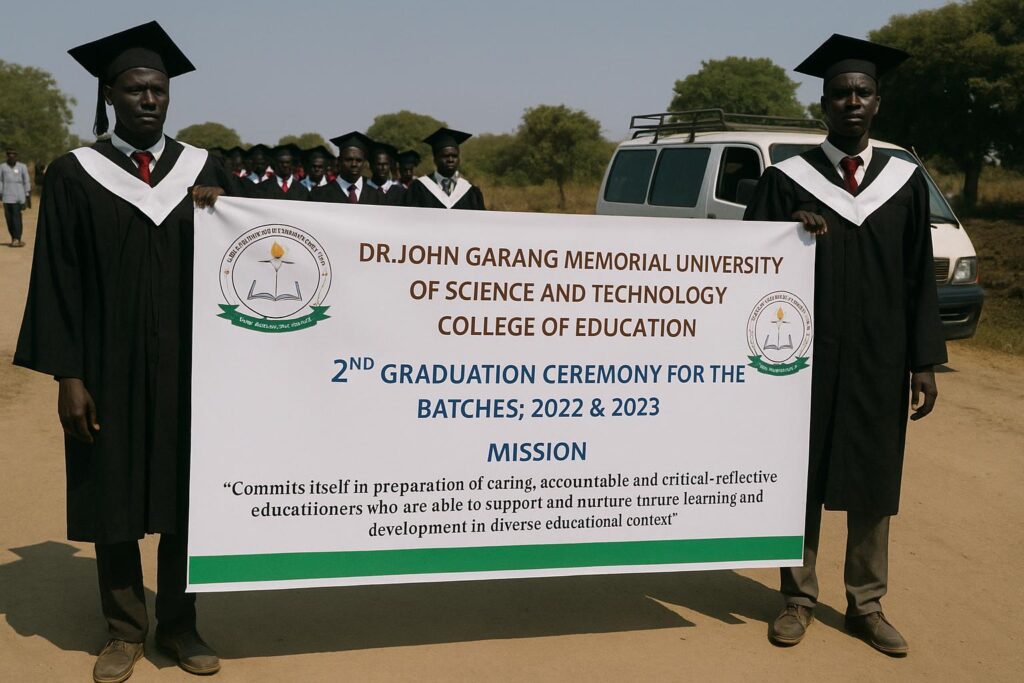Decision to Resume Lectures
A joint sitting of the Deans’ Board, Senate, Students’ Union and the University Representatives Council agreed to reopen Dr. John Garang Memorial University even after the suspension of its once-popular cafeteria service.
Participants argued that prolonged closure risked academic drift. A Students’ Union release stated that the majority saw “continuing without meals as the lesser delay,” a line echoed by several undergraduates contacted by phone by regional press outlets (Sudans Post).
Students Brace for Self-Catering
The Union urged learners to ‘realign their plans’ and arrange personal cooking as they await an updated timetable. Many students in Bor rent small rooms; others share dorm kitchens that have not been fully equipped since the civil conflict.
Gabriel Mayol, a fourth-year education major, told reporters, “Staying idle costs us more than the cafeteria.” He expects peers from distant states to lean on family remittances, although he concedes that transport costs for food will be steep.
Administration Sets New Academic Calendar
Vice-Chancellor Prof. Abraham Matoc Dhal confirmed classes will restart ‘very soon,’ with exact dates pending the Academic Registrar. He emphasised that management responded to a student petition: ‘They know how they will cope; the initiative came from them.’
Officials are reviewing teaching hours to accommodate midday cooking breaks. Some lecturers propose shorter blocks before noon, citing universities in neighbouring Uganda that operate without institutional meals as workable examples.
Economic Strains Behind the Move
Sources inside the finance department say food subsidies became untenable after global grain prices and local fuel costs rose sharply in 2023. Government allocations cover salaries but barely touch catering, forcing earlier suspension. No immediate budgetary relief is expected in the current fiscal cycle.
Analysts note that South Sudan’s inflation, hovering near 30 percent, squeezes both institutions and households. Yet reopening keeps academic calendars on track, crucial for a country rebuilding its skilled workforce after years of conflict, according to education consultant Nyagoa Deng.


